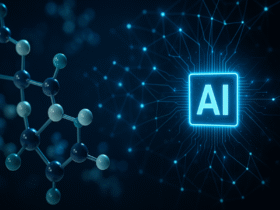Use Cases
Intelligent document processing
This use case involves extracting information from unstructured data, such as text and images. NLP can be used to identify the most relevant parts of those documents and present them in an organized manner.
Sentiment Analysis
Sentiment analysis is another way companies could use NLP in their operations. The software would analyze social media posts about a business or product to determine whether people think positively or negatively about it.
Fraud detection
NLP can also be used for fraud detection by analyzing unstructured data like emails, phone calls, etc., and insurance databases to identify patterns or fraudulent activities based on keywords.
Language detection
NLP is used for detecting the language of text documents or tweets. This could be useful for content moderation and content translation companies.
Conversational AI / Chatbot for customer assistance
A conversational AI (often called a chatbot) is an application that understands natural language input, either spoken or written, and performs a specified action. A conversational interface can be used for customer service, sales, or entertainment purposes.
Text summarization
An NLP system can be trained to summarize the text more readably than the original text. This is useful for articles and other lengthy texts where users may not want to spend time reading the entire article or document.
Text Translation / Machine Translation
NLP is used for automatically translating text from one language into another using deep learning methods like recurrent neural networks or convolutional neural networks.
Question-Answering
Question answering (QA) is a task in natural language processing (NLP) that receives a question as input and returns its answer. The simplest form of question answering is to find a matching entry in the knowledge base and return its contents, known as “document retrieval” or “information retrieval.”
Data Redaction / personally identifiable information (PII) Redaction
One of the more specialized use cases of NLP lies in the redaction of sensitive data. Industries like NBFC, BFSI, and healthcare house abundant volumes of sensitive data from insurance forms, clinical trials, personal health records, and more.
NLP is deployed in such domains through techniques like Named Entity Recognition to identify and cluster such sensitive pieces of entries such as name, contact details, addresses, and more of individuals. Such data points are then made de-identifiable based on requirements.
Social Media Monitoring
Social media monitoring tools can use NLP techniques to extract mentions of a brand, product, or service from social media posts. Once detected, these mentions can be analyzed for sentiment, engagement, and other metrics. This information can then inform marketing strategies or evaluate their effectiveness.
Business Analytics
Business analytics and NLP are a match made in heaven as this technology allows organizations to make sense of the humongous volumes of unstructured data that reside with them. Such data is then analyzed and visualized as information to uncover critical business insights for scope of improvement, market research, feedback analysis, strategic re-calibration, or corrective measures.
Other possible use cases can be Grammer Correction, Sentiment Analysis, Spam Detection, Text Generation, Speech Recognition, NER, Part-of-speech tagging and more….











